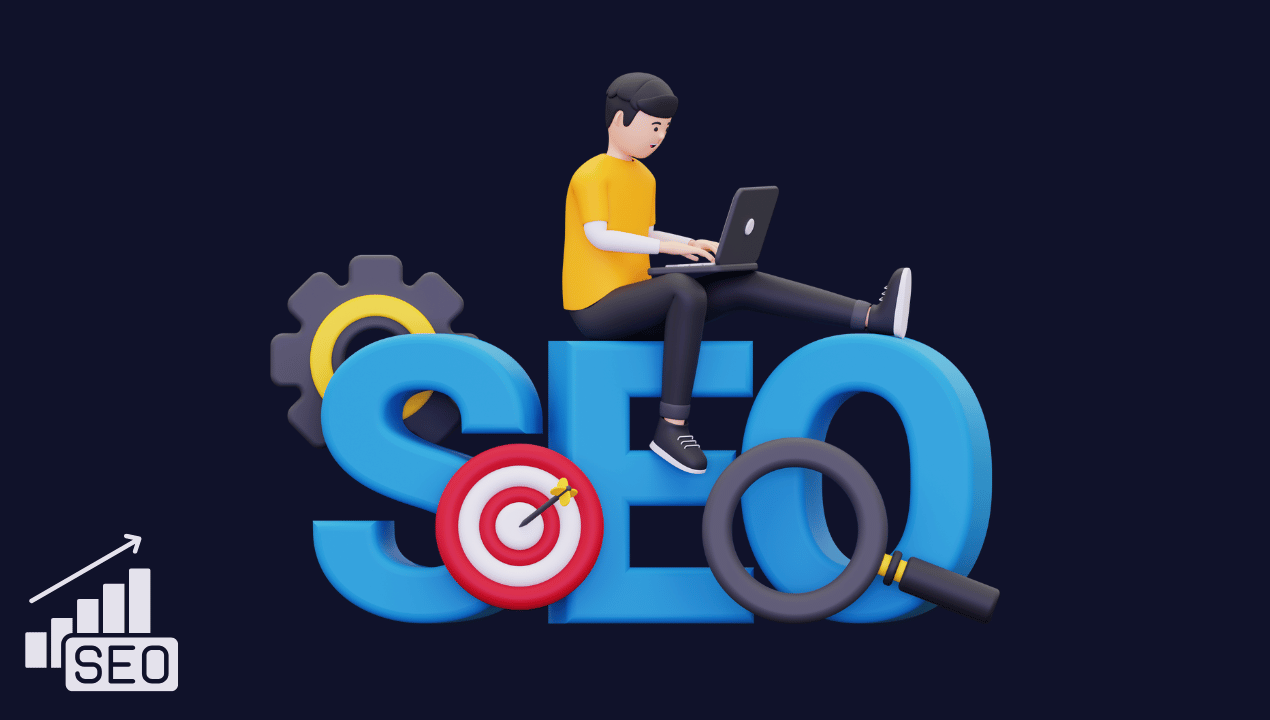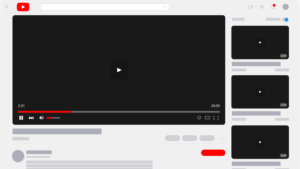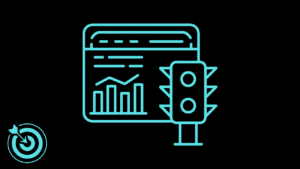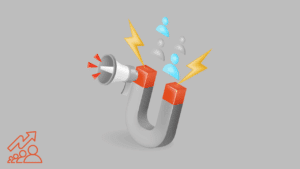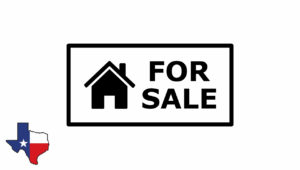SEO turns curiosity into customers. It is a craft that blends psychology, data, writing, and web engineering. If you enjoy learning by doing and you like results you can measure, this field can become a career that pays well and never gets boring. The trick is to follow a plan that builds real skills in the right order, then prove those skills with visible wins. This roadmap gives you that plan, from zero to confident practitioner, with projects you can ship, metrics to track, and the habits that separate pros from dabblers. In this article, you’ll learn how to become an SEO expert, the complete roadmap to a lucrative & successful career.
The fast overview
Use this table to see the core skill areas, how to practice, and what to ship as proof. Treat it like your semester plan.
| Skill area | What to learn first | Time to basic competency | Practice drill | Proof you can show |
|---|---|---|---|---|
| Search foundations | How crawling, indexing and ranking work, user intent, SERP features | One week | Explain a query’s intent by reading the top ten results and label each page’s purpose | A short memo that maps intent for five real queries |
| Technical SEO | Site architecture, crawl budget, canonicals, sitemaps, robots rules, Core Web Vitals | Two to four weeks | Audit a small site and fix indexation issues and broken links | Before and after crawl report with issues solved |
| On page optimization | Titles, headings, internal links, structured data, media optimization | Two weeks | Rewrite a stale page to match intent and add schema | GSC screenshot showing impressions and clicks up after the rewrite |
| Keyword and topic research | Demand, difficulty, opportunity, clustering, search intent mapping | Two to three weeks | Build a topic map for one niche and group queries by page type | A content map with ten pages and their target queries |
| Content strategy and briefs | Outlines that match intent, EEAT signals, on page structure, edits | Two weeks | Write two complete briefs and one finished article that follows a brief | Published page with a clear outline and sources listed |
| Authority and digital PR | Link earning through assets, outreach without spam, unlinked brand mentions | Two to three weeks | Create a useful resource and pitch it to relevant sites | Three quality mentions with anchor context you can cite |
| Analytics and reporting | GSC, GA, crawlers, dashboards, change logs, ROI thinking | Two weeks | Build a weekly scorecard and annotate changes | Simple dashboard that ties actions to outcomes |
Start with how search really works to become an SEO expert
Search engines discover pages by crawling links, decide what to keep in the index, then rank pages when a user searches. Ranking is a relevance and quality problem. Relevance comes from intent match and topical coverage. Quality comes from signals of expertise, performance, link context, and user satisfaction. If you keep this model in your head, your choices become easier. Every tactic you apply should help crawlers understand, help users succeed, or help the web vouch for you.
To learn it quickly, pick five queries in one niche. Read the current winners and label the intent of each result. How to, definition, comparison, tool, local service, news. Note the page types that appear most. This is your compass.
The three pillars that pay the bills: SEO roadmap to a lucrative career
Technical keeps pages discoverable and fast. You will handle site maps, internal links, status codes, canonicals, schema, and Core Web Vitals. Learn to run a site crawl, to find duplicate paths, to fix soft errors, to compress media, and to trim JavaScript that blocks rendering.
On page shapes how a page communicates. You will write titles that match intent, headings that guide scanning, tables or images that clarify, and structured data that unlocks rich results. You will place internal links where they help readers and distribute equity.
Authority earns trust from the rest of the web. You will spot places where your resource is the best answer, pitch an editor or partner with respect, and track mentions over time. Focus on creating assets worth citing, not on tricks.
The ninety day roadmap
You can reach job ready confidence in three focused months. Set aside steady hours and ship projects every week. Keep a change log so you can show what you did and what happened.
Days 1 to 7: Foundations and your lab site
Pick a niche you care about and register a simple domain. Install a fast theme or framework and keep plugins minimal. Set up a crawler, Search Console, and an analytics suite. Create a basic navigation and five blank pages that match your planned map.
Days 8 to 30: Research and first wins: SEO roadmap to a lucrative career
Build a topic map. Group queries by intent and page type. Write two briefs and publish two pages. Optimize titles and headings. Add internal links. Submit your pages for indexing. In Search Console, monitor coverage and fix any indexation errors. Track impressions. Ship one small technical fix each week, for example compress images, remove dead plugins, clean up 404s.
Days 31 to 60: Technical depth and content cadence
Run a full crawl. Tidy canonical tags, check duplicate content, and improve page speed. Publish at least one helpful page per week that follows a brief. Add schema where it fits, for example FAQ or How to markup. Create a useful resource such as a template or checklist that others in the niche would genuinely share.
Days 61 to 90: Authority and reporting: SEO roadmap to a lucrative career
Pitch your resource to a short list of relevant sites and communities. Collect unlinked brand mentions and ask politely for a link when appropriate. Build a simple dashboard that shows impressions, clicks, top pages, and conversion actions. Annotate every change with date and reason. Write one case study from your lab site showing problem, action, outcome.
By day ninety you have a site that ranks for something, a working process, and proof you can show to a client or hiring manager.
Keyword research that finds real opportunity
Start with the questions your ideal user actually asks. Use seed terms to discover related questions and modifiers. Organize by intent. Informational questions become guides and checklists. Comparison terms become structured comparisons. Transactional terms become product or service pages. Local modifiers become location pages. Score each cluster by potential value and realistic difficulty. Many beginners chase the biggest terms and stall. Win the specific queries first, then step up.
When you choose a target, write the promise at the top of your draft. For example, pick the right newsletter tool in ten minutes. Your outline must deliver that outcome. Every section should either help the reader decide, reduce risk, or show a clear step.
On page optimization that respects time: SEO roadmap to a lucrative career
Visitors scan before they read. Put the answer up front. Add a small summary or a checklist near the top. Use descriptive subheads that mirror the queries people typed. Keep paragraphs short and add tables or images that clarify a choice or a step. Name any tools or commands the reader needs. End sections with a useful next move. Link to related pages that naturally extend the task.
Write titles for intent and clarity. Rely on verbs and outcomes. Move the core idea to the front. Keep one H1 and use H2s that answer the main questions for that topic. Place your primary phrase naturally in the opening. Add synonyms and entities across the page. You are writing for a human brain that seeks patterns to become an expert in SEO.
Technical essentials without the drama
A fast, clean site outruns a slow, busy one. Keep your architecture shallow. Important pages should be reachable in a few clicks. Use a human readable URL structure and keep one canonical version of each page. Serve a sitemap and keep robots rules simple. Fix internal redirects when you see them and avoid template decisions that create duplicate paths. Test on a mid range phone on a congested connection. If it feels sluggish, it will cost you visitors.
Measure Core Web Vitals and address the biggest offenders. Image size, render blocking scripts, layout shift from late loading elements. If you inherit a messy site, fix the highest impact issues first and document the lift using SEO roadmap to a lucrative career.
Authority the right way
Links still help when they reflect real trust. Create things that make another editor’s job easier. Original mini data, a visual explainer, a calculator, a standards compliant checklist. Share it with a short note that explains why it helps their readers. Participate where your audience already gathers. Answer questions thoroughly and link only when your page truly adds depth. Most of your mentions will come from relationships and usefulness, not from volume email.
Track branded searches, unlinked mentions, and new referring domains. Celebrate small wins. So, one relevant link can lift a page for months with our SEO roadmap to a lucrative career.
Local SEO as a lucrative path
If you prefer tangible results and fast cycles, local work pays well. Set up and optimize the business profile with categories, services, and real photos. Ensure name, address, and phone are consistent across listings. Create location pages with clear service areas and proof such as testimonials and case studies. Earn reviews with a simple request script and a short link. Add local schema and embed a map on the contact page. In addition, many local businesses sit in low competition spaces where careful work leads to visible movement within weeks.
Build a portfolio that sells itself to become an SEO expert
A resume lists tools. A portfolio proves outcomes. Package three case studies. One from your lab site. One from a local friend or nonprofit you helped. Finally, one from any freelance or agency project you can share. Each case study should include the starting point, the diagnosis, the actions, the change in impressions and clicks, and the business result such as leads or sales. Add two or three screenshots with annotations. Keep it readable in five minutes. A hiring manager should finish thinking you can do the same for them.
Tools you actually need
You can start with a crawler, Search Console, analytics, a page speed tester, and a rank tracker. Add a research tool when budget allows. Add a log analyzer only when you work on large sites. Fancy stacks do not replace judgment. So, become excellent with a small kit and you will outpace people who chase widgets.
Reporting that leaders trust to become an SEO expert
Executives care about movement that matters. Use a simple weekly or monthly scorecard. Show impressions and clicks for priority pages, show conversion actions, and show what you changed. Add a short note on what you will do next. Keep the story tight. When you tie actions to outcomes, you earn budget and freedom.
Career paths and how to choose
Agency life teaches speed and pattern recognition. You see many industries and you learn to ship on a deadline. In house work teaches depth. You become the steward of one domain and you influence the product. Freelance gives autonomy and sales practice. You learn to set scope, manage clients, and price value. Try one path for a year and check how you feel. In conclusion, your strengths will point to the right fit.
If you are switching careers, anchor your past experience. Writers become strong content strategists. Developers become technical leads. Analysts become reporting specialists who guide decisions. The field rewards hybrids.
Pricing your work and landing clients to become an SEO expert
If you freelance, package outcomes, not hours. Sell an audit with fixes and a ninety day plan. Sell a content map and three briefs with the first two pages delivered. ?In addition, sell a local presence makeover that includes listings, on page work, and a review plan. Quote a fixed fee when scope is clear and a monthly retainer when ongoing work makes sense. Protect time with a clean statement of work and checkpoints.
For outreach, keep it human. Pick ten prospects you can truly help. Write a short note that names one visible problem and a specific next step. Offer a tiny free win, for example a rewritten title and intro for one page with clear reasoning. Some will say yes. Treat those people like gold.
Common mistakes to avoid
Chasing volume over intent
Publish fewer pages that answer more precisely. Depth beats scatter.
Writing for a tool instead of a reader
Tools guide. Readers buy. If the page feels robotic, fix the prose.
Ignoring internal links
A smart internal map is your best free lever. Guide both crawlers and people.
Delaying action because you want perfect data
Improve the obvious issues now. Measure the effect. Repeat.
Your first week, simplified to become an SEO expert
Day one
Pick a niche and set up your lab site and measurement.
Day two
Map five queries and label intent. Draft one outline.
Day-three
Publish one helpful page and submit for indexing.
Day-four
Run a crawl and fix low hanging technical issues.
Day-five
Rewrite one stale page on a friend’s site or your own and track the change.
Day-six
Create a tiny resource that adds value in your niche.
Day-seven
Write a change log entry and a short reflection on what you learned.
Repeat this rhythm and you will learn faster than people who only read.
Frequently asked questions
How long until I see results
Impressions often move within a week for new pages, clicks follow as relevance improves and links accumulate. Local changes can lift visibility within a month. Big wins compound over a quarter.
Do I need to code
You need to read HTML and understand how pages are built. You do not need to be a full engineer. Curiosity about how the web works will carry you far.
Which certificates matter
Certificates can open an interview. Case studies close the deal. Focus on proof.
How do I keep up
Follow a small set of trustworthy sources and test ideas on your lab site. Keep notes. The habit of testing protects you from hype.
Final thoughts to become an SEO expert
Becoming an SEO expert is not about tricks. It is about understanding intent, building fast and clear pages, earning trust from the web, and measuring honest outcomes. So, follow the roadmap in this guide, ship something small every week, and collect proof as you go. In a few months you will have a working system, a portfolio that speaks for you, and the confidence to charge for results. That is the path to a career that is both lucrative and deeply satisfying.
